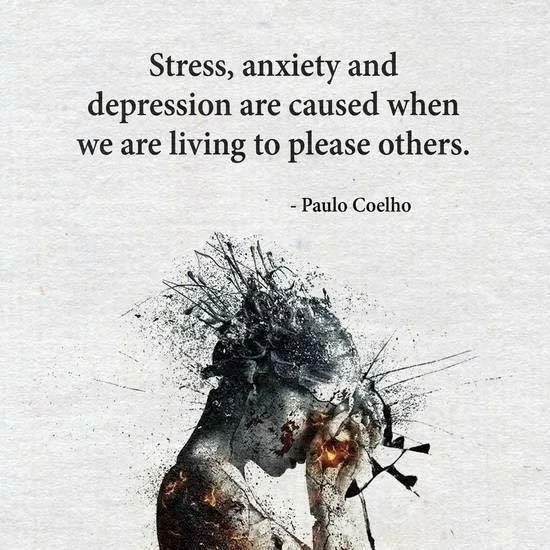Saying YES to No.
Your coworker asks you to take on extra tasks. Your friend asks for a ride home again. You're asked to join the PTA. Can you chaperone the class field trip? An acquaintance needs help moving.
Sure, you can do it! Yes. Yes. Yes. Yes. Yes. NO.
You're tired and are neglecting yourself.. You're a people pleaser. No, you say? You're not? Just nice? Being helpful? This blog title is unfathomable for you. Not something you can imagine doing.
Many people-pleasers confuse pleasing people with kindness. When discussing their reluctance to turn down someone’s request for a favor, they say things like, “I don’t want to be selfish,” or “I just want to be a good person.” Consequently, they allow others to take advantage of them.
Typically, the intense need to please and care for others is deeply rooted in either fear of rejection and/or a fear of failure. Fear of Rejection is the underlying feeling that, "if I don't do everything I can to make this person happy they might leave or stop caring for me." You hope that saying yes to everything asked of them will help you feel accepted and liked. This can come from relationships with important people in your early life rejecting or abandoning you or where the love shown was conditional. Fear of failure is the underlying feeling "If I make a mistake, I will disappoint people and/or be punished. People who had highly critical parents may develop a people-pleasing pattern. Even though these folks may not even be in your life anymore, anxiety is an emotion that can continue to live on for a long time. To quell the anxiety, we do everything we can to get things right, finish the job, and make sure everyone is happy.
Ok, ok, enough of the why, now onto WHAT CAN YOU DO??
1. Reframing for yourself what saying no means....."you as a person are entitled to your time and you need to rest and rejuvenate to be there for the people you want to help out.” Look at saying no as an opportunity to spend your time doing what you value in your life. Protect your time and energy. You’re in charge of how you spend your time. But if you are a people-pleaser, there’s a good chance your schedule is filled with activities that you think other people "want" you to do.
2. Try on the first NO for size. The first no that you state to anyone is going to be the hardest. Once you get over that first NO hurdle, you will be well on your way of getting off of the YES channel (all yesses, all the time). Also, remember point #1, that you’re saying no for good reasons. Start getting out of the people-pleasing habit by saying no to something small. Express your opinion about something simple.
3. Get over yourself. People-pleasers often worry that after they say no, the fallout will be catastrophic. It is never as bad as imagined. It’s usually a non -issue, actually. Why? Well, people are not thinking about you as much as you think. After you say NO to them, they'll move on to someone that can do it, rather than sit there thinking about how you betrayed them.
4. Realize that you can’t be everything to everyone- You're not pizza. Again, people-pleasers want to make everyone happy. While you might make someone happy temporarily, it doesn’t work long term. And you can get hurt in the process. People-pleasers must realize that the only thoughts and feelings they can change are their own.
5. #SorryNotSorry- Pay attention to when you’re apologizing and consider if you’re really at fault. Ask yourself if you’re responsible for the situation. Usually, the answer is no. You don’t have to be sorry for being you.
For some people, saying yes, being nice, and being a people-pleaser is an addiction—a habit that’s good to break.
Please, people! Let me help you sort out your wants, needs and who (Spoiler alert......Yourself) and how you really want to please.
Compassionately & Curiously Yours,
Barbie Atkinson, LPC





